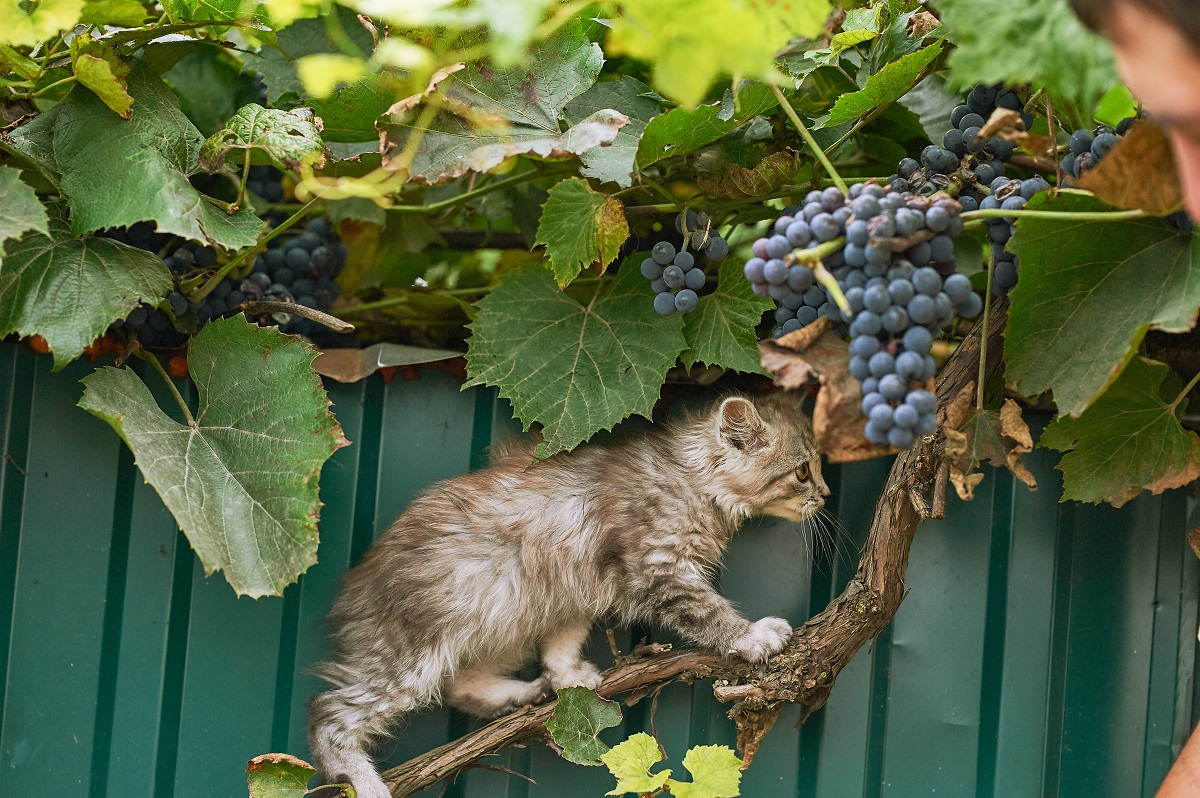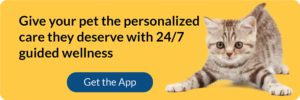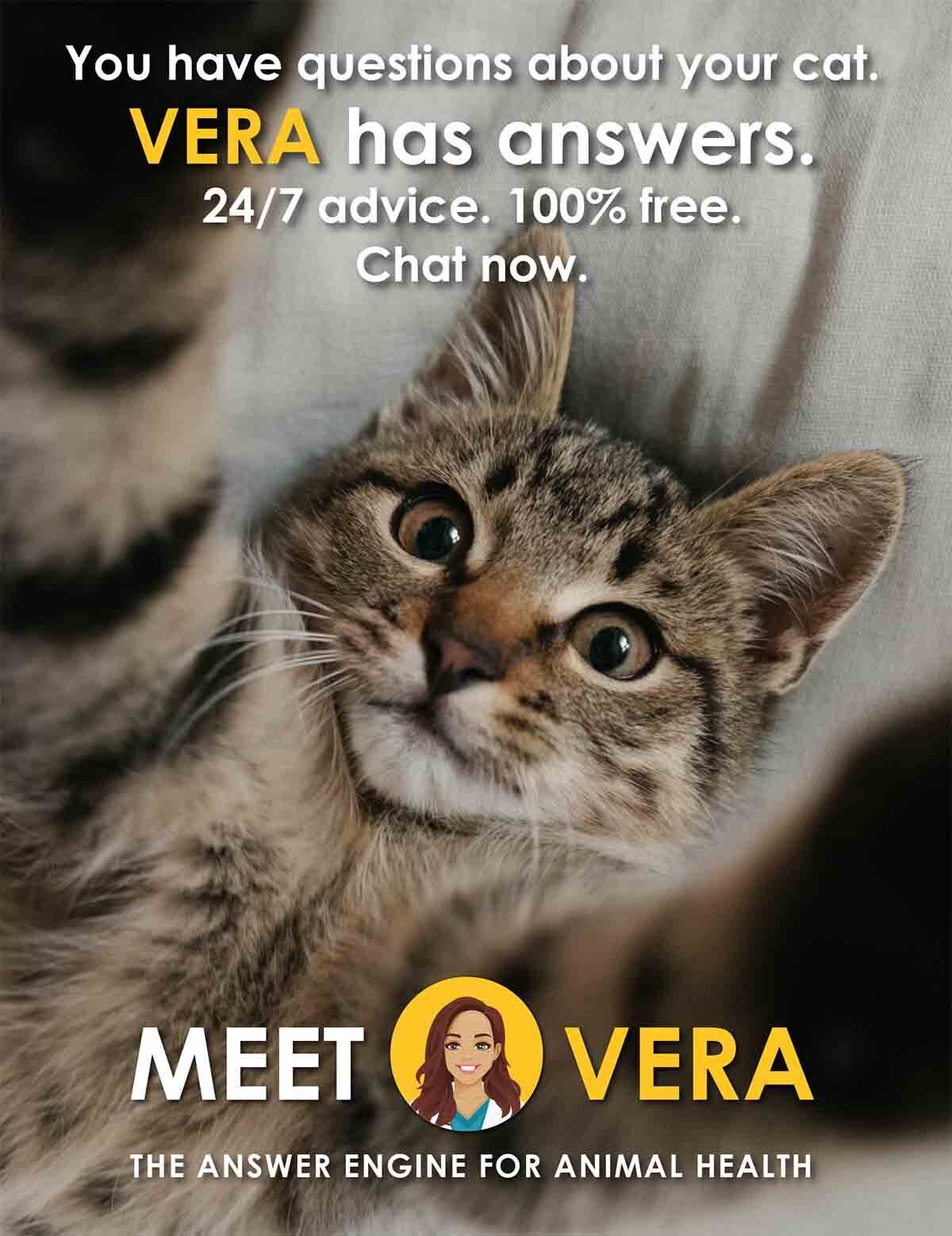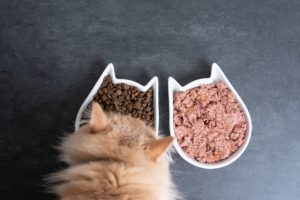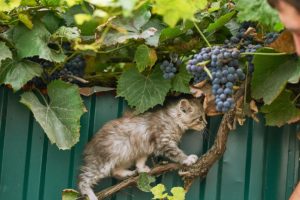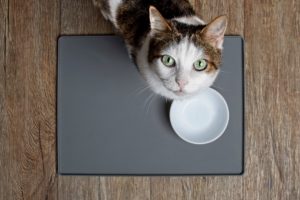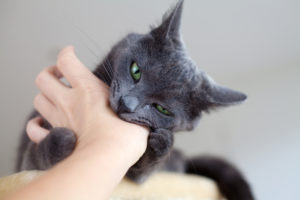Most of us cat lovers know what it’s like to have our curious kitty try to take a nibble on whatever we are currently eating! Unfortunately, some of their beloved human foods are poisonous to cats and should NEVER be fed to them. If your cat swallows one of these dangerous foods, make sure to reach out to a veterinarian immediately for advice to prevent illness.
The Most Toxic Foods for Cats
Chocolate/Caffeine
While dogs are the more famous species for having problems with chocolate, cats can experience serious side effects from this toxic food, too. Since cats do not have taste buds for “sweet” tastes, we see this problem less often in our feline friends. Unfortunately, though, cats are just as sensitive to the poisonous compounds in chocolate as dogs are. The toxic effects are from a chemical called theobromine as well as from caffeine—which means that anything caffeinated can also be dangerous to your kitty. Symptoms include hyperactivity, elevated heart rate, muscle tremors, diarrhea, abdominal pain, vomiting, seizures, and even death.
Grapes & Raisins
Grapes and raisins are one of the most dangerous foods that can lead to potential poisoning of cats as well as dogs. This toxicity is described as “idiosyncratic,” which means that some pets are able to safely ingest grapes/raisins, and for some, these foods are deadly. The problem is that we never know which individuals are vulnerable—so it’s best that your kitty be seen ASAP if they eat grapes or raisins. Symptoms of grape/raisin toxicity can include vomiting, abdominal pain, diarrhea, kidney failure, and death.
Onions/Garlic/Chives
If your cat loves to inspect the kitchen while you’re cooking, they may be at risk of swallowing some of these common “bulb” ingredients. Onions, garlic, chives, and related plants can be toxic if eaten in large enough amounts. It takes several days for noticeable symptoms to develop. Anemia (low red blood cells) is the most worrisome toxic effect, and it can be life-threatening. If you think your cat has consumed anything with garlic or onion (including powdered spices!), then contact a veterinarian right away.
Raw Foods
We all know that human food from the grocery store should be cooked to an appropriate temperature before serving it to our guests—and this is true for our cats as well! Raw meat, eggs, poultry, and bones are sources of bacteria that can cause a severely upset stomach, and even life-threatening infections and death. Examples of harmful bacteria found in raw food products include E. coli and Salmonella.
In addition, these bacteria survive on your cat’s food bowls—even through cycles in the dishwasher!—exposing members of your household to foodborne illness. For these reasons, we do not ever recommend incorporating raw egg, bone, or protein into your cat’s diet.
Dangerous Foods for Cats
The foods below are not poisonous to cats, but they can cause dehydration through vomiting, diarrhea, and an upset stomach—and sometimes require hospitalization to help them through their illness. It’s a good idea to keep your kitty away from them!
Fatty Foods
Cats tend to be lean, mean, hunting machines…and their bodies evolved to consume high protein/low carbohydrate/low-fat diets. For this reason, if a cat enjoys a meal that is fattier and/or heavier in carbohydrates than he’s used to eating, he may develop vomiting, diarrhea, or have a decreased appetite for a few days.
Dog Food
If your cat likes to sneak a few pieces of kibble from your doggo’s bowl now and then, there’s no need to worry—but cats should NEVER be fed dog food as their primary source of calories. Dog food is lacking in certain nutrients for cats that, if they become deficient, can lead to life-threatening heart problems, as well as other issues.
Milk
While kittens nurse from their mother and ingest milk for the first few weeks of life, adult cats do not have the enzymes needed to break down lactose (a sugar found in dairy products). Since they cannot digest it properly, milk often causes diarrhea, vomiting, and dehydration in adult cats—so skip the saucer and give them some dehydrated chicken as a treat instead!
Talk to a Trusted Vet
Now that you know what foods you need to avoid feeding your favorite feline, you know how to protect them from these common kitchen hazards. Our AskVet Veterinarians are available to discuss all of your pet’s needs 24 hours a day, 7 days a week. Whether it’s learning how often should you feed a cat, understanding the difference between wet vs dry cat food, or how to get a cat to lose weight, just sign into your account, and one of our friendly and knowledgeable veterinary experts will attend to your needs, no appointment required!
Written by:
Allison Ward, DVM
Dr. Allison Ward grew up in the suburbs of Washington, D.C. and started working in veterinary hospitals when she was 14 years old. After graduating from veterinary school in 2011, she completed a small animal rotating internship in New Jersey, followed by a neurology/neurosurgery internship in Miami. After completing this advanced training, Dr. Ward then moved on to general small animal practice. Dr. Ward’s professional interests include feline medicine, neurology, and pain management. Her passion for educating pet owners carries over into her work with AskVet, and she loves being able to help pets and their parents at all times of the day (and night!). She currently resides in sunny south Florida with her two cats, Larry and George.

